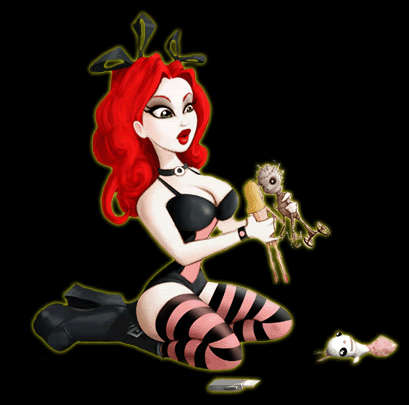 Title: Harry Potter and the Deathly Hallows
Title: Harry Potter and the Deathly Hallows
Author: J K Rowling
ISBN # 9780747591061
Publisher: Bloomsbury
First Published: 2007
607 pages
Format: Hardback
Rating: 7/10
*** SPOLIER WARNING ***
IF YOU HAVE NOT READ THIS BOOK, BUT INTEND TO,
PLEASE DO NOT READ THIS REVIEW
YOU HAVE BEEN WARNED!
Synopsis:
Harry is waiting in Privet Drive. The Order of the Phoenix is coming to escort him safely away without Voldemort and his supporters knowing if they can. But what will Harry do then? How can he fulfil the momentous and seemingly impossible task with which Professor Dumbledore has left him.
In this final, seventh instalment of the Harry Potter series, J.K. Rowling unveils in spectacular fashion the answers to the many questions that have been so eagerly awaited. The spellbinding, richly woven narrative, which plunges, twists and turns at a breathtaking pace, confirms the author as a mistress of storytelling, whose books will be read, reread and read again.
Review:
Like millions of other readers around the world, I desperately awaited this final installment of the Harry Potter saga, complete with hopes and fears about how it would stand up to the hype. Well, the long and the short of it is this – it’s pretty good, but not the best of the series, not by a long shot.
It all starts very well, with the action moving at lightning pace as Harry’s friends in the Order of the Phoenix attempt to get him safely away from Privet Drive before the protection charm wears out as he comes of age on his seventeenth birthday. During all this, two major characters are killed and another is seriously wounded, setting the tone for the rest of the book- anything could happen and anyone could die – nobody is safe!
Then, after a short pre-amble, the Harry Potter Trio get down to the business of finding the horcruxes, but this is where I felt everything got bogged down. Harry, Hermione and Ron seemed to be camping forever. Yes, the action took place over the course of several months, but it felt like it took me just as long to read that section. The camping expedition felt long, drawn out and torturous, and eventually got very repetitive with a constant round of the three of them arguing about how to go about locating the horcruxes, Ron and Harry disputing each other’s methods and intelligence, and Hermione coming up with the answers. In the end I got pretty fed up of Hermione fixing everything, and throughout their hunt, I felt as lost as they were, as they seemed to find things out by chance, rather than any serious deduction or making use of proper clues. And there is another shocking and pointless (or so it felt) death.
Eventually, though, this had to come to an end, and thankfully, I was treated to some more rip-roaring action as Voldemort brings the battle to Hogwarts. Now the pages are awash with blood as the good guys battle the bad guys, hurling spells left, right and centre. Two more major characters were wiped out without a decent send-off (their bodies are spotted, but their deaths occur off-screen), and there is a major revelation about the nature of the link between Harry and Voldemort before the final smack-down.
And then there’s an epilogue, set nineteen years later which, although wraps everything up nicely, feels a little “tagged on” in order to lift things a little from the bloodbath of the previous pages. Yes, it was interesting to find out what happened to those who were left alive (although only a handful of them are actually mentioned), but it was just a little too nice and still left a lot unsaid (although the actual Potter/Voldemort story was wrapped u nicely).
I was heartened to find that I was right all along about Severus Snape, who has been one of my favourite characters throughout the series and, in my opinion, has been sorely under-used. Another pat on the back for myself over the important role played by Neville – the boy who was almost the boy who lived (if Voldemort hadn’t forced the prophecy and assumed it was Harry – it always could have been either one of them!), although that part was so rushed and garbled that I had to re-read it three times before I could work out who had done what and how they had done it. Nevertheless, I was glad to see poor Neville well-done-by – he deserved it!
Overall, it’s a very enjoyable book, if a little slow in the middle (it’s a bit of a slump, but it’s definitely worth continuing past it) and, for the most part, very easy to read, but for me it didn’t match up to The Goblet of Fire, The Order of the Phoenix, or even The Half-Blood Prince, all of which were better paced and better written. Still, it was an exciting end to an engaging story and one that I will certainly re-read, along with all the others, and enjoy again.
 Title: The Name of the Rose
Title: The Name of the Rose















